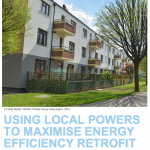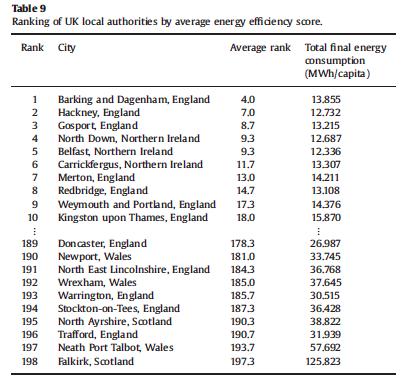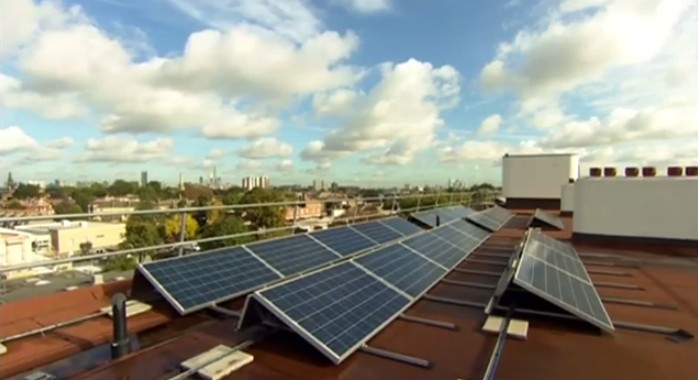Site search:
-
What’s new?
Energy for London Tags
Brent Buildings Camden Carbon Emissions CHP Cities Climate Adaptation Community Heating Community Initiatives Croydon Data DECC Decentralised Energy Distribution ECO Energy Costs Energy Efficiency Enfield FIT Fuel Poverty Funding Green Deal Hackney Haringey Housing Islington Lambeth Library Local Authorities Mayor Newham Ofgem Olympics Photovoltaics Planning RE:FIT RE:NEW Renewable Energy Retrofit Southwark Tower Hamlets Transport Waltham Forest Waste WestminsterEnergy Archives:
- February 2021 (1)
- January 2021 (15)
- December 2020 (15)
- November 2020 (9)
- October 2020 (3)
- August 2020 (5)
- July 2020 (3)
- June 2020 (4)
- April 2020 (10)
- March 2020 (5)
- February 2020 (2)
- January 2020 (3)
- October 2019 (1)
- September 2019 (4)
- August 2019 (2)
- July 2019 (1)
- August 2018 (1)
- November 2016 (8)
- October 2016 (8)
- September 2016 (2)
- August 2016 (8)
- July 2016 (14)
- April 2016 (12)
- March 2016 (16)
- February 2016 (8)
- January 2016 (4)
- December 2015 (1)
- November 2015 (1)
- October 2015 (16)
- September 2015 (3)
- June 2015 (1)
- May 2015 (1)
- April 2015 (1)
- March 2015 (1)
- February 2015 (1)
- January 2015 (1)
- December 2014 (18)
- November 2014 (4)
- August 2014 (8)
- July 2014 (7)
- June 2014 (25)
- May 2014 (8)
- April 2014 (4)
- March 2014 (12)
- February 2014 (7)
- January 2014 (13)
- December 2013 (11)
- November 2013 (15)
- October 2013 (15)
- September 2013 (18)
- August 2013 (5)
- July 2013 (20)
- June 2013 (33)
- May 2013 (8)
- April 2013 (16)
- March 2013 (25)
- February 2013 (14)
- January 2013 (20)
- December 2012 (23)
- November 2012 (23)
- October 2012 (25)
- September 2012 (14)
- July 2012 (12)
- June 2012 (43)
- May 2012 (20)
- April 2012 (8)
- March 2012 (40)
- February 2012 (39)
- January 2012 (40)
- December 2011 (22)
- November 2011 (40)
- October 2011 (33)
- September 2011 (48)
- August 2011 (40)
- July 2011 (58)
- June 2011 (41)
- May 2011 (80)
- April 2011 (38)
- March 2011 (33)
- February 2011 (25)
- January 2011 (24)
- December 2010 (3)
- November 2010 (7)
- October 2010 (6)
- September 2010 (7)
- August 2010 (1)
- July 2010 (2)
- June 2010 (4)
- May 2010 (1)
- March 2010 (3)
- February 2010 (3)
- December 2009 (5)
- November 2009 (2)
- October 2009 (3)
- July 2009 (3)
- June 2009 (1)
- April 2009 (1)
- March 2009 (1)
- February 2009 (1)
- January 2009 (1)
- December 2008 (2)
- October 2008 (1)
- September 2008 (1)
- July 2008 (1)
- March 2008 (2)
- January 2008 (2)
- October 2007 (1)
- September 2007 (3)
- July 2007 (1)
- March 2007 (1)
- February 2007 (3)
- November 2006 (3)
- August 2006 (1)
- February 2006 (1)
- May 2005 (1)
- February 2004 (1)
Tag Archives: Local Authorities
Climate-related incidents affecting eight in ten councils
11 December 2020: The Local Government Association (LGA) latest research on the effects of climate change on local authorities shows that eight in ten councils have suffered climate-related incidents in the last five years. The findings emerge from a survey (conducted to October 2020) of Directors of Environment or equivalent of all councils in England which is available here.
Nine London boroughs responded to the survey. The results are aggregated, so no specific London-results are set out. The survey had roughly a 30 per cent response rate, with a majority of councils who had declared a climate emergency responding. Key findings include:
- Around 72 per cent of local authorities surveyed were measuring their own scope 1 and 2 emissions, and 36 per cent were measuring their own scope 3 emissions.
- Over 80 per cent of responding councils indicated that there was an executive council member of their authority whose portfolio specifies a lead role on climate change
- The areas of expertise and skills most frequently identified as in need of further development were green economic planning (95 per cent) and low carbon procurement and low carbon budgeting (92 per cent).
- The most frequently identified barrier to tackling climate change was funding (96 per cent), followed by legislation or regulation (93 per cent) and lack of workforce capacity (88 per cent).
Much more detail set out the survey results.
Posted in Library, News
Tagged Local Authorities, London Councils
Comments Off on Climate-related incidents affecting eight in ten councils
LGA launches report to help councils tackle climate change
21 August 2020: “The LGA, which represents councils in England and Wales, has worked closely with the Centre for Public Scrutiny and has published a guide to help councils play a leading role in tackling the climate crisis at a local level. The resource, which sets out 10 scrutiny questions, will help all councils and policymakers to embed the necessary environmental, social and cultural changes that communities need to see to build resilience to respond to climate challenges such as investment strategies and transport plans.”
The guide can be downloaded here and is a useful read setting out comprehensive suggestions on routes to develop a robust climate emergency plan including how future scrutiny of plans can be undertaken; including the local community and how to best engage the public in the plan; planning the involvement of local businesses, partners and employers to understand the local growth context. The 10 questions framing the report are as follows:
Continue reading…
Posted in Library, News
Tagged climate emergency, Local Authorities, London Councils
Comments Off on LGA launches report to help councils tackle climate change
LGA and UKSSD launch Sustainable Development Guide for councils
17 July 2020: Local Government Association (LGA) news release announcing that the LGA and UK Stakeholders for Sustainable Development have today launched a guide to “help councils engage with the United Nations Sustainable Development Goals (SDGs) at a time when many are starting to re-think the role of local government in leading places and empowering people.” Read the full story and access the guide here.
Posted in Library, News
Tagged Local Authorities, London Councils
Comments Off on LGA and UKSSD launch Sustainable Development Guide for councils
Three quarters of councils are switching off or dimming streetlights
22 December 2014: “Of Britain’s 5.7 million streetlights 558,000 now being shut off at night, an eight fold increase on 2010, figures show. According to a major survey of the 141 of the 150 councils in charge of lighting Britain’s streets 50 have switched some lights off altogether, 98 councils have decided to dim at least some streetlights. Overall 106 of the 141 councils, doing one or the other, or both figures obtained by Labour Party from FOI requests reveal.”
Read full Daily Telegraph article here.
North London Green Deal Funding
4 March 2014:Welcome announcement today from DECC that the first tranche of funding to local authorities from the Green Deal Communities Fund includes an unspecified amount to “6 north London boroughs led by Haringey“.
No details have been released as yet in relation to the Mayor’s bid to the fund with 7 London boroughs: Barking and Dagenham, Havering, Greenwich, Kingston, Redbridge, Sutton and Wandsworth (see here and here for more details) – however, this was only submitted to DECC in late December. The Mayor is also supporting a bid “led by LB Camden which will drive take-up of Green Deal within the private rented sector.”
Following the announcement on 2 December 2013, there is now £80 million of capital funding available under the Fund.
Local authorities are taking charge of their energy supply…
February 2014: Useful Guardian online web discussion on how ‘Local authorities are taking charge of their energy supply, so what can we learn from projects so far? Good level of London contributions to the debate, including representatives from Hackney, Haringey and Repowering London. Worth a quick read!
DECC HECA Research
November 2013: All English local authorities were required to submit an updated Home Energy Conservation study report to DECC by 31 March 2013. An earlier post goes into these requirements in more detail and provides links to the report from those London boroughs who had posted them online on their website.
DECC have now published research summarising around 245 of these reports (see the Excel spreadsheet on the following link) as well as a document providing links to all reports published online. See both here. Only 20 London boroughs reports are however summarised on the spreadsheet. The HECA list states that some London boroughs have still not submitted reports: these appear to be Barking & Dagenham, Brent, Lambeth and Southwark.
It’s unclear if Bexley, Islington and Merton have submitted reports, as no links are listed – though the list does not say explicitly set out that these reports have not been provided: however, their actions are also not summarised on the spreadsheet.
Brixton Energy on the Beeb
November 2013: The recent BBC London coverage of the Brixton Energy solar schemes can now be viewed on Youtube here. The new piece includes interviews with Brixton Energy and Repowering London Director Agamemnon Otero and Labour Council Leader of Lambeth, Lib Peck.
Cllr Peck states in her interview that local authorites should be looking to work on similar projects in their own areas but it will be about the will of councils to say they want to make these projects happen and get rid of the challenges and obstacles.
Licence Lite Update
October 2013: There has been little news recently on progress being made for the first ‘license lite’ license to be awarded – however – discussions do continue and below some recent references to the initiative are gathered together.
First, DECC’s Community Energy – Call for Evidence paper published in June 2013 covered the issue stating:
“96. Community renewable electricity projects typically sell their electricity through Power Purchase Agreements (PPAs), whereby an energy supply company agrees to buy electricity from a generator over a fixed period of time at a fixed rate. For community electricity generators it can be difficult to negotiate with large energy supply companies. Aggregators such as Smartest Energy have in the past helped community groups overcome this hurdle. We also recognise that the move from the Renewables Obligation to the Contracts for Difference (CfDs) is a significant one and that the structure of PPAs will need to change, to reflect the changes to the risk profile and the structure of CfDs. The Government has initiated a process to support the market in preparing for the CfD in order to speed this transition and reduce costs.
97. Another route to market for community-generated electricity is Licence Lite, a new form of electricity supply licence, which was proposed by Ofgem in February 2009. The purpose of the licence is to enable smaller scale electricity generators to overcome the costs, risks and complexities of operating in the electricity supply market. If successfully implemented, it will enable them to supply electricity into the retail electricity market and earn a higher market rate than at present for the power they produce.
98. Although no Licence Lite has yet been granted, initial applications have recently been made, including by the Mayor of London, through the Greater London Authority. We hope this will help resolve some of the issues around selling community-generated electricity, and we will be keen to see what evidence comes out of these cases.“
And two recent workshops also provided some information on the background to Licence Lite. At Ofgem’s community energy workshop held in September, Ofgem officials provided a short presentation on the basic benefits of being ‘License Lite’. And law firm Nabarro – who have undertaken significant work in this area for the GLA – held an event in July with a strong focus on licence lite where a helpful presentation was provided by the GLA providing information of their work to date and anticipated further actions. Some previous posts also go into further detail.
City Power Play: 8 Ways Local Energy Policies Can Boost the Economy
October 2013: Really interesting new report by US-based organisation, the Institute for Local Self-Reliance, describing how “dozens of cities are boosting their local economies while dramatically reducing greenhouse gases“. City Power Play: 8 Practical Local Energy Policies to Boost the Economy provides case studies on various US cities which have used the following routes to help promote energy efficiency and renewables through the following actions:
- Municipal utilities
- Community choice aggregation
- Building energy codes
- Building energy use disclosure
- Local tax authority
- Solar mandates
- Permitting
- Local energy financing
A lot to learn from this excellent analysis, which can be downloaded here.
Using Local Powers to Maximise Energy Efficiency Retrofit Toolkit
 August 2013: CAG Consultants on behalf of the GLA have developed a new toolkit – Using Local Powers to Maximise Energy Efficiency Retrofit Toolkit – “to help London’s councils identify and implement solutions to help attract investment and delivery for energy efficiency measures. It focuses on three commonly cited challenges: planning, data and logistics.” The report highlights that:
August 2013: CAG Consultants on behalf of the GLA have developed a new toolkit – Using Local Powers to Maximise Energy Efficiency Retrofit Toolkit – “to help London’s councils identify and implement solutions to help attract investment and delivery for energy efficiency measures. It focuses on three commonly cited challenges: planning, data and logistics.” The report highlights that:
- The opportunity for energy retrofitting in London’s housing is immense: more than one in five of the U.K.’s solid walled homes are in the capital, as well as 14 per cent of England’s fuel poor homes.
- Energy efficiency projects can regenerate entire communities, drive up housing values and engage residents in wider issues of sustainability
- Retrofitting also provides an opportunity for pioneering local authorities to get an edge in the growing energy efficiency market and generate local jobs.
- London has the highest proportion of properties in conservation areas of any UK city – around 500,000 properties. For these properties, planning permission is required for most works which change the external appearance of the property.
The guide provides some helpful references to planning guidance issued by Camden (also see here and here for further information) and Haringey to help support energy efficiency retrofit measures such as solid wall insulation. A further barrier often faced by retrofit programmes has been identifying the most vulnerable homes that would benefit from increased levels of insulation as a priority, and the report provides some useful information on data-sharing initiatives undertaken by Southwark and Haringey councils, working alongside colleagues in housing and benefits teams, to help overcome this [p 27-30].
Posted in Energy Efficiency, News
Tagged Energy Efficiency, Haringey, Housing, Islington, Local Authorities, Retrofit, Southwark
Leave a comment



